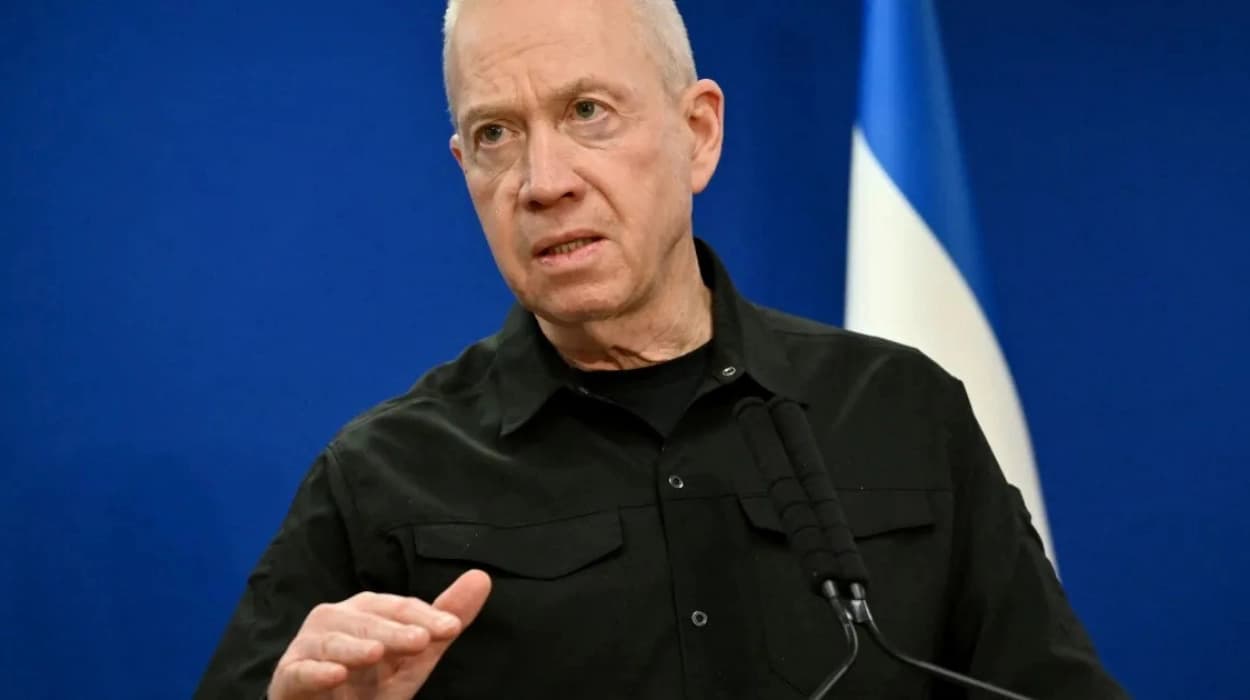Key Points
Israeli Defence Minister has publicly called for the confinement of all Palestinians in Rafah.
The statement comes amid heightened tensions and security concerns in the region.
Authorities have imposed curfews and launched crackdowns on organized groups, including beggar mafias, in various cities.
The situation has led to increased security operations and arrests.
International and regional responses are awaited as the situation develops.
What has the Israeli Defence Minister stated regarding Palestinians in Rafah?
As reported by Geo News in their 12 PM headlines on 8th July 2025, the Israeli Defence Minister has called for the confinement of all Palestinians in Rafah, signalling a significant escalation in Israeli security and military policy in the area19. This statement reflects ongoing concerns about security and control in the border region, which has historically been a flashpoint.
What actions have been taken by authorities in response to security concerns?
Geo News also reported a massive crackdown on organized beggar mafias across multiple cities, with curfews imposed and arrests underway as part of a broader security operation1. This crackdown appears to be part of a wider effort to tighten law and order amid rising tensions. The imposition of curfews and large-scale operations indicates a serious approach by authorities to restore control and address organised crime elements that may be linked to or exacerbated by the broader conflict environment.
How does this development fit into the broader geopolitical context?
According to the Global Trade Update by UNCTAD published on 8th July 2025, global trade and economic conditions are currently under pressure due to persistent policy uncertainty and geopolitical tensions3. While this report focuses on economic trends, it highlights the wider environment of instability that includes the Middle East, where Israeli-Palestinian tensions contribute to regional and global uncertainty.
What are the implications for local populations and international observers?
The call for confining Palestinians in Rafah, combined with curfews and crackdowns, raises significant humanitarian and political concerns. The local population faces restrictions on movement and increased security presence, which could exacerbate tensions and hardship. International observers and human rights organisations are likely to monitor these developments closely, given the potential for escalation and impact on civilian lives.
What is the current status of rescue and emergency operations related to recent incidents?
Separately, Geo News reported a tragic plane crash on 3rd July 2025, with multiple casualties confirmed and rescue operations underway5. While unrelated directly to the Rafah situation, this incident adds to the overall climate of crisis and emergency response challenges in the region.
What is the background to the Israeli Defence Minister’s statement?
The call to confine Palestinians in Rafah is part of a broader security strategy amid ongoing conflict and unrest. Rafah, located at the southern border of the Gaza Strip adjacent to Egypt, has long been a critical area for smuggling and militant activity. The Israeli Defence Minister’s statement reflects a policy aimed at tightening control over this sensitive border area to prevent security threats.
How have local authorities responded to security threats?
Authorities have launched coordinated operations targeting organised crime and groups perceived as threats to public order. The crackdown on beggar mafias, as reported by Geo News, shows an effort to dismantle networks that may contribute to instability1. Curfews and arrests are tools used to enforce these measures, aiming to restore order and security in urban centres.
What are the economic and geopolitical factors influencing this situation?
The UNCTAD Global Trade Update highlights that geopolitical tensions, including those in the Middle East, are impacting global economic stability. Trade growth has slowed, and policy uncertainty remains high. The concentration of digital markets and economic power in certain regions also plays a role in shaping international responses and priorities.
What are the potential consequences for civilians in Rafah and surrounding areas?
The confinement of Palestinians and security crackdowns can lead to restricted access to essential services, increased hardship, and potential human rights issues. The situation demands careful monitoring to ensure that security measures do not disproportionately affect civilians or escalate conflict further.
How are international and regional actors likely to respond?
While no specific international reactions have been reported yet, the global community typically responds to such developments with calls for restraint and respect for human rights. Regional actors, including Egypt and Palestinian authorities, are expected to engage diplomatically to address the implications of these security measures.
